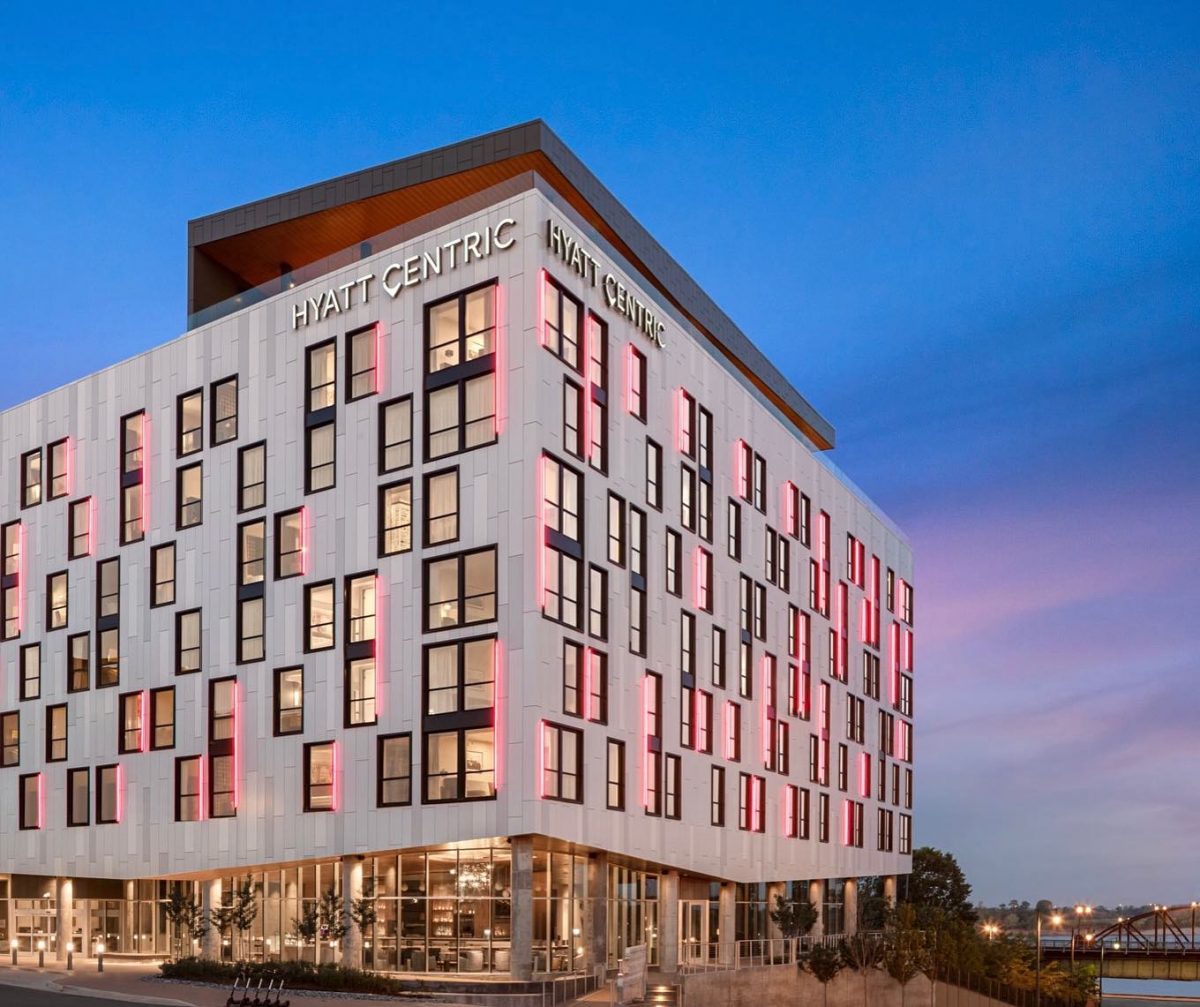A private company wants Memphis taxpayers to pay for its luxury hotel if it doesn’t do well.
That was, essentially, the ask before Memphis City Council members Tuesday. Officials with One Beale, the development that now has two luxury hotels open at the corner of Front and Beale Streets, came to Memphis City Hall Tuesday for the fourth time Tuesday asking for financial support of its development.
The company is helmed by Chance Carlisle, brother of council member Chase Carlisle. Over the years of the One Beale project, Carlisle and his company has asked for — and received — a 30-year tax break on the project, the city’s first-ever rebate of the local option sales tax back to the company, and an unprecedented 50-percent backstop of the loan to build the hotel.
Carlisle was back at city hall Tuesday to ask city leaders to backstop the entire loan — $161 million — for the project, payable only if revenues for the hotel fall below around 50 percent. This means if the city backs the loan (ever had a co-signer on a car loan?) and the hotel tanks, city taxpayers are left holding the bag. Why the ask?
“The bond market has gone south,” Carlisle told council members early Tuesday morning, noting that the deal — as it is now — “can not go forward as structured.”
With that, Carlisle said his company has three options: approval of the 100 percent backstop, adding more company money to the project and dilute the ownership stake (“primarily our minority equity partners”), or “we can walk away and call it quits.”
Why is it good for the city? Several council members said Tuesday that if the hotel deal falls through, the city won’t have enough “quality” hotel rooms to lure conventions to the Renansant Convention Center.
”We know that we lose conventions because we don’t have the Downtown hotel rooms,” said council member J. Ford Canale. “So, I think that everybody would agree that the [Grand Hyatt Hotel] is needed.
“We’ll never be great and this city will never get to the next level or the next step without taking some risk.”
Memphis City Council member J. Ford Canale
“This project is needed to come to completion. And is there some risk involved? Sure there is. But every big decision, every bold decision has risk. We’ll never be great and this city will never get to the next level or the next step without taking some risk.”
While many council members were ready and eager to sign the dotted line, Shirley Ford, the city’s chief financial officer, said financial experts had not had time to fully vet the move. The adminIstration sent the proposal to Tennessee State Comptroller Jason Mumpower who, Ford said, had “very grave concerns about the direction the this investment has now taken.” With that, Ford reiterated numerous times that she wanted council members to have “complete information” about the project.
The Tennessee State Comptroller has “very grave concerns about the direction this investment has now taken.”
City of Memphis chief financial officer Shirley Ford
If the city signs on, it does not mean money will flow from the coffers immediately or, maybe, even at all. Should Carlisle fail to make its money at the hotel, tax payers would then be expected to pay.
“This is a contingency,” said council member JB Smiley. “We use the word if that means ‘possible,’ but doesn’t mean ‘certain’ that the city will ever pay a dime to support this project.”
But the city would have to carry the debt on its books. That could affect its bond rating, sort of like the city’s credit score. So, if a city is carrying $161 million in potential debt, it may mean it could have trouble borrowing money down the road.
Should the city have to pay back the loan, it would put an annual hole in the city budget that could go toward paying for police, fire, parks, and all the other things citizens expect their tax dollars to do. Council member Patrice Robinson put it plainly Tuesday.
It is our responsibility to make sure that we make the best decision for the one of the poorest cities in the United States. And if we make a mistake, we can make them even poorer.
Memphis City Council member Patrice Robinson
“It is our responsibility to make sure that we make the best decision for the one of the poorest cities in the United States,” Robinson said. “And if we make a mistake, we can make them even poorer.
The council was slated to take up the measure during its full meeting Tuesday evening. This story will be updated later this week.
